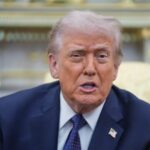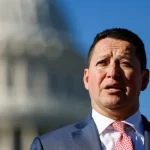
Spying is not always James Bond or cloak-and-dagger kinds of stuff.
Sometimes secrets can fall into the wrong hands through industrial espionage.
For instance, U.S. federal authorities say former Apple employee Weibao Wang took with him confidential Apple material regarding self-driving cars when he resigned from Apple and joined a startup owned by Baidu, a major Chinese technology company.
Wang, 35, indicted by a federal grand jury in May, joined Apple as a software engineer in March 2016, and worked with an Apple team “that designed and developed hardware and software for autonomous systems, which can have a variety of applications, such as self-driving cars,” according to a news release from the U.S. Attorney’s Office of the Northern District of California.
Wang left Apple after about a month and in November 2017, took a full-time job as a staff engineer “with the U.S. subsidiary of a company headquartered in the People’s Republic of China…and was allegedly working to develop self-driving cars,” the news release said.
Trending:
Although his current LinkedIn site still has Wang employed by Apple, the U.S. attorney’s office did not name the Chinese company for whom Wang allegedly stole secrets.
Reuters last year identified Wang as an executive of Jidu, the electric vehicle subsidiary of Baidu. Wang’s mention by Reuters was in a June 2022, story of Jidu developing a self-driving concept car.
When he left Apple on April 16, 2018, “Apple identified Wang as having accessed large amounts of sensitive proprietary and confidential information in the days leading up to his departure from Apple,” according to the U.S. attorney’s office news release.
Wang Weibao, Head of Autonomous Driving at Jidu, resigns. Two weeks ago, the ex-Apple engineer was accused of stealing Apple’s self-driving tech and taking it to a Baidu-backed automaker. pic.twitter.com/vUcgR2M2T9
— CarNewsChina.com (@CarNewsChina) May 30, 2023
Should Chinese espionage be a higher priority for US law enforcement?
Yes: 100% (2 Votes)
No: 0% (0 Votes)
Also, after departing Apple and while employed apparently at Jidu, authorities said Wang accessed more of Apple’s confidential information.
A June 27, 2018, search of Wang’s Mountain View, California, residence found “large quantities of data taken from Apple prior to his departure,” the release said.
“Wang was present during the search and told agents he had not plans to travel. Nevertheless, Wang purchased a one-way plane ticket from San Francisco International Airport to Guangzhou, China, and boarded the flight that night.”
The indictment contains six categories of trade secret theft and, if found guilty, Wang could be sentenced to up to 10 years in prison and fined $250,000 or “twice the gross gain or loss resulting from the scheme” for each count.
With Wang apparently in China, the charges were made in absentia, UPI reported.
So industrial espionage — perhaps not as exciting as movie spy adventures — can get things to places not friendly to the U.S.
And there are other ways.
As in when then-President Barack Obama told Congress in 2015 of his administration beginning talks with China about providing them access to U.S. nuclear data, according to Business Insider.
Or President Bill Clinton selling missile technology to China as reported by Capital Research.
Then there’s President Joe Biden and his family. What’s going on there is more confusing and speculative than I’d like to deal with today.
Suffice it with this — on Biden’s watch, a Chinese balloon was able to happily drift its way across the American continent.
If that’s not a breach of intelligence, what is?






